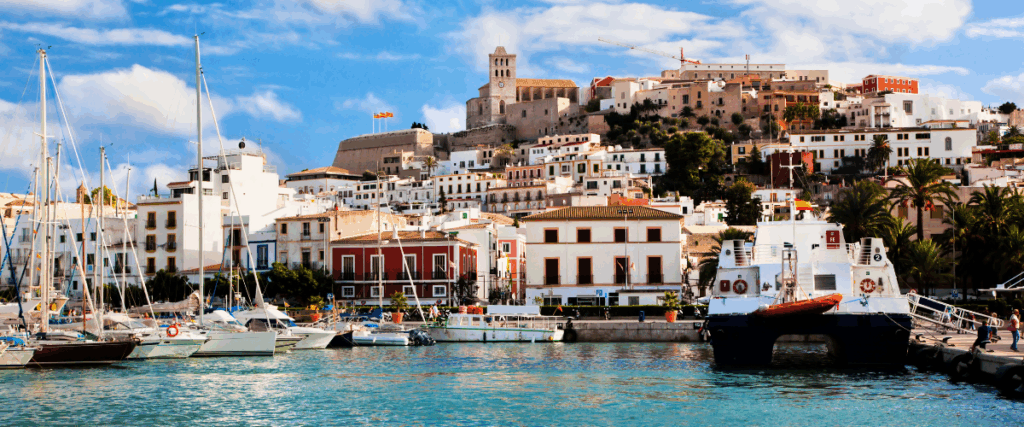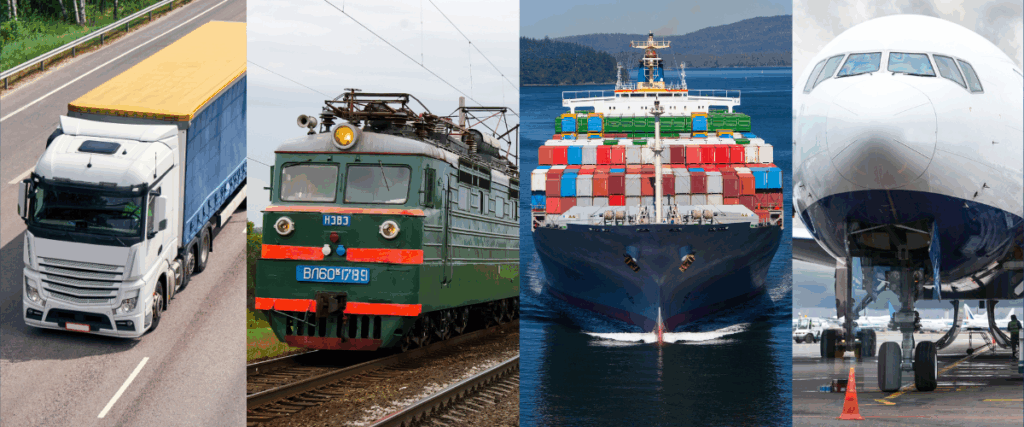Have you ever wondered what it would be like to transport to the Spanish islands knowing that customs procedures differ depending on your desired location? Unlike mainland Spain, reaching destinations like Mallorca, Tenerife or Gran Canaria requires careful planning and an understanding of how different transport modes connect. Whether you’re sending palletized goods, large cargo, or temperature-sensitive products, knowing your options helps ensure efficiency, reliability, and cost balance.

Routes and Connections
When you transport to the Spanish islands, typically a combination of road, rail, sea and air transport is involved. Since the islands cannot be reached by road alone, the first leg usually takes place within mainland Europe:
- Road or Rail to Spain: Most shipments start their journey by truck or train from the Netherlands to major Spanish ports such as Barcelona, Valencia, or Huelva. Rail is often chosen for its cost efficiency and lower CO₂ emissions, while road remains flexible for smaller or time-sensitive shipments
- Short Sea Shipping: From Spain, goods continue their journey by sea to the Balearic Islands (Mallorca, Menorca, Ibiza, Formentera) or to the Canary Islands (Tenerife, Gran Canaria, Lanzarote, Fuerteventura). Depending on the port of departure, transit times vary from 1–3 days for the Balearics and 5–7 days for the Canaries.
- Direct Ocean Freight: For bulk or containerized goods, direct sailings from Northern Europe to the Canary Islands are available. Though slower, this route minimizes handling and can be more economical for large volumes.
- Air Freight: For urgent shipments or high-value goods, air transport connects major airports like Amsterdam Schiphol with Palma de Mallorca or Tenerife South. While the most expensive option, it guarantees the fastest delivery.
Choosing the Best Option (for you)
Deciding on which route and mode depends solely on the goods you are transporting and the goals your company aims to reach. Ask yourself this:
- Are my goods fragile, perishable or hazardous? If yes, they may require specific handling or you might have to choose faster transit options.
- Am I looking for a cost-efficient option? Then choose the rail and short sea. But if your goods urgently need to be delivered, choose air freight.
- Am I aware that when I transport to the Canary Islands both costs and time will be affected as it is farther from mainland Europe compared to the Balearics?
- And does my company prioritize sustainability? If yes, consider multi-modal transport (rail + sea) to reduce emissions.

Things to Look Out For
Transporting to the Spanish Islands can be challenging as weather disruptions, limited sailing schedules, and differences in local infrastructure often require flexible planning. Many first-time shippers struggle most with coordinating connections between mainland and island transport or understanding which documentation is needed for each destination. This is where trusted partners become essential, they bridge the gap between modes, languages, manage timing, and keep every stage aligned.
Customs Differences
Depending on the island group, customs procedures differ. When you transport to the Balearic Islands (Mallorca, Menorca, Ibiza, and Formentera) the customs follow standard EU procedures, making transport relatively straightforward. The Canary Islands, however, are outside the EU VAT zone and have their own tax and customs framework. As a result, goods entering the Canaries may require separate declarations, additional documentation, and sometimes longer processing times.
Experienced logistics companies sustain smooth operations by coordinating with customs brokers, staying informed about regional updates, and managing multimodal connections efficiently. Their expertise allows them to anticipate potential delays, prepare the right paperwork, and ensure compliance without delaying shipments.
Parties Involved
Moving goods to the Spanish Islands involves multiple parties working together across different stages. Typically, this includes the shipper (exporter), freight forwarder or logistics provider, customs broker, port operators, and local carriers handling final delivery. Coordination among these stakeholders ensures smooth transitions between transport modes, proper customs clearance, and timely deliveries, especially when shipments move through several ports or require multi-modal transfers.
Tips
- Plan ahead: Weather or port congestion can affect sailing schedules, so early booking helps avoid delays.
- Optimize packaging: Goods are often transloaded between modes; secure and stackable packaging reduces risk of damage.
- Check documentation: Customs and VAT rules differ slightly for the Canary Islands, as they are outside the EU VAT zone.
- Track transit times: Align your production or delivery schedules with vessel and rail timetables.
Frequently Asked Questions (FAQs)
| What is the cheapest way to transport goods to the Spanish Islands? Short sea combined with rail is generally the most cost-effective and sustainable solution. |
| Can I send partial loads or pallets to the Spanish islands? Yes, groupage (LTL) shipments are possible. They’re consolidated with other goods and shipped via road-sea combinations. |
| Are there customs procedures for the Balearic Islands? No, the Balearic Islands follow EU customs rules, but the Canary Islands require separate declarations due to their special fiscal status. |
| How long does transport take from the Netherlands to the Spanish Islands? Approx. 4–6 days to the Balearics and 8–10 days to the Canaries, depending on connections and mode. |
Ready to ship but don’t have a partner yet?
We can help.
At Portex , we’ve supported businesses who transport to Spain and the Islands for over 20 years. Based in the Port of Rotterdam, we offer direct connections and a reliable network of island carriers. Whether you need FCL, LCL/groupage, road, rail + ocean, or air freight from Schiphol, we can manage the process end‑to‑end, from pickup to final delivery.
If you need transport to the Spanish Islands from other destinations, that´s also possible.

GET IN TOUCH
REQUEST A QUOTE
